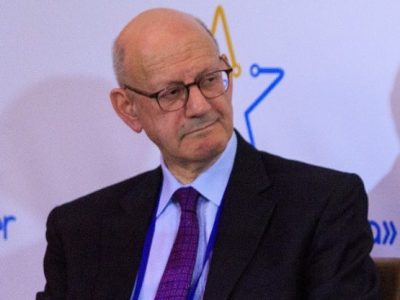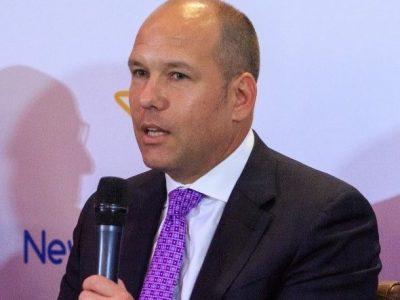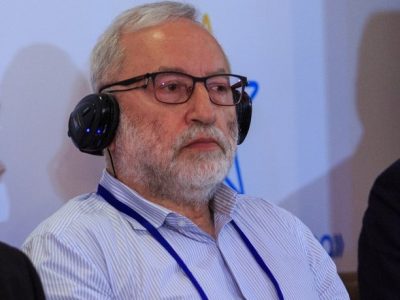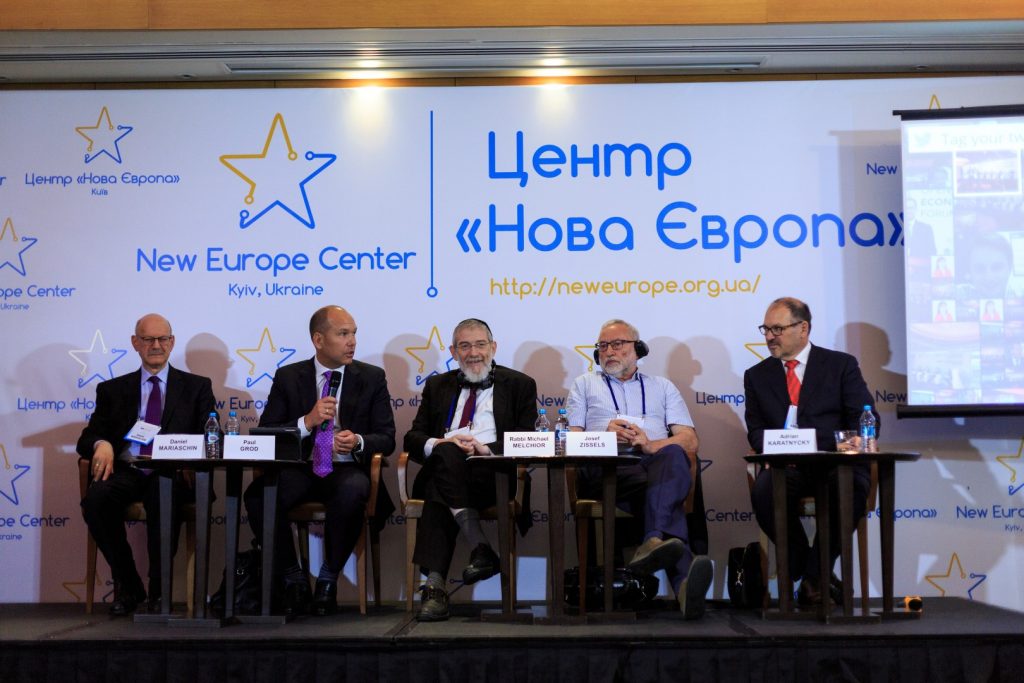Interaction with the diaspora: How can Ukraine use Israel’s experience? (WS4)
How can the diaspora advocate important state questions in the international arena? Is Israel’s experience a good fit for Ukraine? How does the Ukrainian diaspora help Ukraine? These were some of the topics discussed during Session No. 4, headlined “Israel’s Experience of Interacting with the Diaspora,” which took place on 12 June 2018 at the conference “Israel’s Experience of Nation Building: Lessons for Ukraine,“ organized jointly by the New Europe Center (NEC) and the Ukrainian Jewish Encounter. Below, we present the speakers’ main points.
 Rabbi Michael Melchior, Minister of Social and Diaspora Affairs (1999–2001)
Rabbi Michael Melchior, Minister of Social and Diaspora Affairs (1999–2001)
Israeli leaders long ago identified three main points in their relations with the diaspora:
- “First, the diaspora was viewed as a set of people who could potentially return to Israel. Second, the diaspora was viewed as a source of political support for Israel. Third, the diaspora was viewed as a source of financial support for Israel, because at the time [that Israel was being created—NEC] Israel was a poor state.
From the moment that Michael Melchior became Minister of Social and Diaspora Affairs, Israel’s relations with the diaspora changed fundamentally.
- “I would say that we are changing our relations—they cannot be one-sided. We must not only receive from the diaspora, we should give something back, do something for world Jewry. One of the first things that I did in my post as minister, together with American philanthropists and others, was to create a program called Birthright Israel [an educational organization that sponsors free ten-day trips to Israel for young adults of Jewish heritage, aged 18–26—NEC].”
Thanks to Birthright Israel, the number of representatives of the Jewish diaspora who made the trip to Israel increased by several times.
- “Until that point [the launch of Birthright Israel—NEC] only ten percent of the world’s Jews had visited Israel at least once in their lives. We wanted to change this, not only so that people would come to Israel, but also in order to revive identity. And it worked! Today, more than fifty percent of representatives of the diaspora identify themselves as Jews.”
Every Jew has the right to obtain Israeli citizenship, in accordance with the Law of Return (passed on 5 July 1950).
 Daniel Mariaschin, General Director and Executive Vice-President of B’nai Brith International
Daniel Mariaschin, General Director and Executive Vice-President of B’nai Brith International
Israel uses the Jewish diaspora for the purpose of advocacy in other states.
- “In Israel there are several dozen Jewish-American organizations that advocate questions in the sphere of Israel’s security.”
- “There are more than fifty organizations that advocate questions relating to the State of Israel.”
Over time Israel was transformed from a receiver of aid from the Jewish diaspora into its donor.
- “For years Israel was the recipient of aid from the Jewish diaspora; now Israel provides assistance in many ways. For example, there is a considerable number of Israeli teachers who work in schools abroad, and rabbis from Israel are found all over the world.”
B’nai Brith advocates questions pertaining to Israel in many spheres throughout the world.
- “All over the world our associates are constantly taking measures to support Israel. They champion its good name and support its struggle against terrorism and hostile regimes. We do this at the UN, in the USA, in the OSCE, etc.”
 Paul Grod, head of the Ukrainian Canadian Congress
Paul Grod, head of the Ukrainian Canadian Congress
The Ukrainian diaspora in Canada was formed by four waves of emigration:
- “The first wave took place in the late nineteenth century; the second, shortly before the outbreak of the First World War; the third, after the Second World War; the fourth, after Ukraine gained its independence.”
The Ukrainian diaspora in Canada, unlike the diasporas in other countries, considers itself one of the founders of the state in which they live.
- “If we look at the fourth or fifth generations of Ukrainian Canadians, they are unique; they stand out from the representatives of other diasporas because they consider themselves one of the founders of Canada. In some towns in western Canada, Ukrainians comprise more than fifty percent of the population.”
Help for Ukraine from the Canadian diaspora increased after the Revolution of Dignity.
- “Ukraine gained independence, and [Ukrainian Canadians] celebrated, relaxed, and anticipated liberalization. Later, however, after the beginning of the Orange Revolution, we realized that democracy in Ukraine is truly under threat and that we had to become more engaged in protecting democracy in Ukraine. After the Orange Revolution ended, we decided that we had restored democracy in Ukraine, and we relaxed once again. Then the Revolution of Dignity took place. I believe that today the attitude of the Ukrainian Canadian diaspora to Ukraine has changed significantly. We have realized that we cannot sit by idly, because Ukraine is threatened not only by domestic challenges but also foreign aggressors.”
After the Revolution of Dignity, people in Ukraine properly gauged the assistance of the diaspora in Canada.
- “After the Revolution of Dignity, the Ukrainian people and the government came to see the true value and strength of the Ukrainian diaspora in Canada, which revealed itself through the accumulation of international support for Ukraine during the events on the Maidan and Russia’s aggression.”
Contemporary émigrés from Ukraine assimilate quickly into the countries to which they have come to live.
- “At present we have a big challenge—the swift assimilation of new Ukrainian emigrants who are leaving Ukraine because of the difficult political and economic situation, as well as the war. They only want to live in peace, and this greatly eases their assimilation into the societies in which they are living now.”
In Canada, the Ukrainian diaspora adopts a significant number of measures to support its Ukrainian identity.
- “Canada is a country where the identity of the Ukrainian diaspora is maintained. My children and I are a fine example of this: You are born into a Ukrainian family; you are baptized in a Ukrainian church; you attend a Ukrainian kindergarten and Ukrainian school; you take part in Ukrainian student, cultural, and professional organizations, and Ukrainian organizations for elderly people. Funerals also take place at Ukrainian cemeteries.”
Today, Ukraine’s relations with the Ukrainian Canadian diaspora are one of the best in history.
 Yosyf Zissels, head of the Association of Jewish Organizations and Communities of Ukraine
Yosyf Zissels, head of the Association of Jewish Organizations and Communities of Ukraine
For objective reasons, it will be difficult for Ukraine to utilize Israel’s experience of interacting with the diaspora.
- “Experience can be passed on, but very carefully; it must be adapted. Secondly, research has to be done on whether it is possible to transfer this experience, which was formed in a completely different geography, in other conditions, and in another identity—this is the most important—to another place, where this experience may not take root and may be rejected.”
Jews and Ukrainians have different identity markers:
- “The sign of religiosity is a very important marker. For Jews, this is first and foremost Judaism; for Ukrainians, this is Orthodoxy, for the most part. This marker, which indicates that there is a big difference at the heart of identity, must be taken into consideration. There are other markers, too. For example, Jews came from the Near East, while Ukrainians are part of the Slavic world.”
Bulgaria is the only country whose identity markers coincide relatively with Ukraine’s.
- “The only country where markers coincide more or less with Ukraine is Bulgaria. This is a Slavic country, this is an Orthodox country, this is a post-communist country, and this is a post-colonial country. When a country exists in various kinds of colonial dependence over a long period of time, this has a serious impact on its identity. And in Bulgaria, the Soviet part of history is fifty years, in Ukraine this is seventy years; this distorts identity as well.”
Unlike the Ukrainian people, the Jewish people in its majority was not part of any empire.
- “The history of the formation of states is also varied. Ukraine became independent in 1991. The imperial system collapsed, and Ukraine gained the opportunity to become an independent and democratic country. In Israel there was no such past. Israel had never been anyone’s colony. The territory was part of the Ottoman Empire, but Israel as a state and as a people was not part of the empire. During the founding of the State of Israel, Jews arrived from many countries, above all from Europe. This diverse creation of states demonstrates that you cannot transfer experience mechanically (from Israel to Ukraine).”
Ukraine is strengthening its relations with Israel at the same time as the Ukrainian-Jewish diaspora is scaling them back.
- “Ukraine as a state is improving its relations with Israel. In the last 26 years they have developed very much, but it is the opposite with the Jewish community: it is scaling back these relations somewhat. In our country we have our tasks, and they do not always coincide with Israel’s. We are very grateful to Israel for giving us assistance in the early 1990s to build up our structure. For Israel, however, emigration was important, not just from Ukraine but from all countries; but for us it was important to preserve and revive the Jewish community because it was decimated by the Soviet government.”
Translated from the Ukrainian by Marta D. Olynyk.
Edited by Peter Bejger.




















